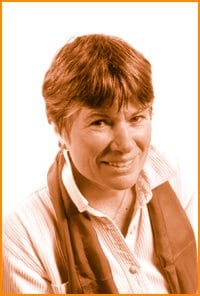For a brief shining moment last week, the door of liberalism opened for sex-positive spaces in Vancouver-until the monolith of Victorian prudishness marched in and slammed it shut.
For a couple of days, Vancouver had a space, at least on paper, where escort services and other Yaletown businesses could operate side-by-side, while residents moved in upstairs.
But it was not to be.
The mainstream media immediately sensationalized the story and civic politicians dove for cover, says sex trade activist Jamie Lee Hamilton.
The uproar stems from a Sep 11 vote in council to allow escort services and massage parlours to operate in a yet-to-be-built section of Yaletown, which will cover 16 land parcels in only a few blocks. The area will feature a new “live-work” zoning policy, allowing residents to live above office spaces in some townhouses.
Not surprisingly (given council’s usual stance on sex-related zoning issues), the originally proposed zoning bylaw excluded sex-related businesses from the area.
Councilors removed the exclusion at the last minute after Hamilton made an impassioned plea and convinced enough of them not to discriminate against sex trade workers. Escort services are allowed to operate in other areas of the city zoned solely for office work.
Lesbian councilor Ellen Woodsworth says she voted to remove the exclusion primarily to protect sex workers. In doing so, she abruptly broke with the puritanical streak which has typified so much of the city’s regulations in the past.
It didn’t last long.
By Saturday, in the face of a mounting public, business, police and media outcry, councilors were in full retreat, calling for a new vote on the issue.
Woodsworth says she got a call from the Tenants’ Rights Action Coalition immediately after the Yaletown vote. The coalition was concerned that the new zoning bylaw would create a panic among landlords, who would then throw Yaletown prostitutes out of their homes in order to forestall those homes being used as trick pads. (The best known prostitution area of Yaletown is the Boystown zone around Drake and Homer.)
That’s where things get confusing, since escort services are supposed to be dispatch offices for escorts-not bawdyhouses.
All the councilors had actually done was allow forms of businesses already permitted in other office zones to move into a new zone where residences and business would co-exist. But critics interpreted it as the start of a change which would allow prostitution in residential areas.
Of course, that wouldn’t necessarily be a bad thing, Hamilton quickly points out.
In fact, council could have made a big difference in the campaign to legalize bawdyhouses, she says. Vancouver pushing the bawdyhouse issue could have pushed the federal debate one step closer to striking the antiquated laws from the Criminal Code, she explains.
At the very least, Vancouver could have softened its puritanical approach to regulating sex-related businesses.
But it was not to be.
“They did take a strong leadership position on equality for sex trade workers,” Hamilton notes, adding that she’s happy council opened the door. But she’s disappointed and saddened that councilors didn’t have the backbone to shove their collective foot in the door and keep it open.
“Council bent and did a complete summersault in two days,” she says.
Now Hamilton is hoping that Woodsworth and councilor Anne Roberts (who seconded the motion and supported it for at least 24 hours before backing off) will keep the debate going on sex-positive zoning and sex worker safety.
Woodsworth says she plans to do just that. Ottawa needs to change the solicitation laws prohibiting prostitutes from communicating with potential clients, and Victoria has to step up to the plate with funding for those who wish to leave prostitution, she says.
As for council’s overall approach to sex-related zoning policies, Hamilton says it’s time for some serious changes. For starters, she says, city hall shouldn’t be in the business of deciding where people can buy lube, porn videos or sex toys.
According to existing zoning regulations, Vancouver’s sex shops can only operate in a few areas of the city, such as Granville St, Davie and Broadway-and even then, many conditions apply. Stores face strict guidelines regarding how close they can get to each other, how far away they have to stay from schools, daycares, playgrounds and community centres, and what they can put in their window displays.
City hall has to get out of the business of legislating morals, Hamilton says.
As Xtra West goes to press, council is embarking on round two of the question of whether or not to allow escort services and other sex-positive businesses to operate in the new Yaletown zone.

 Why you can trust Xtra
Why you can trust Xtra


